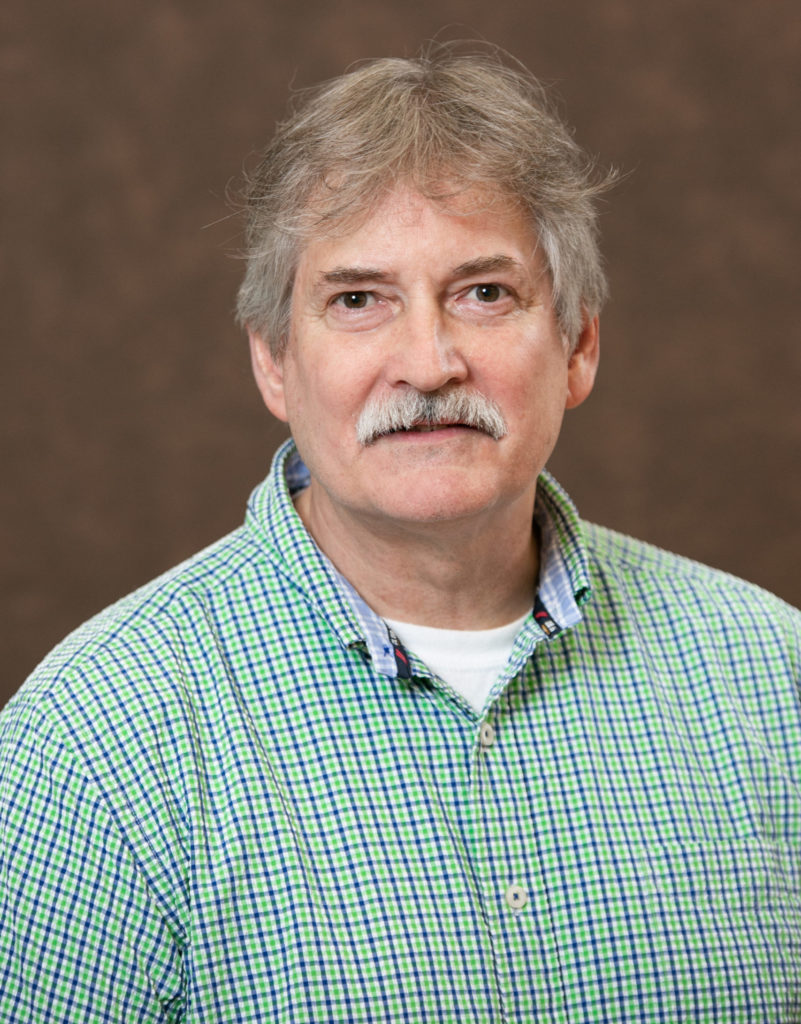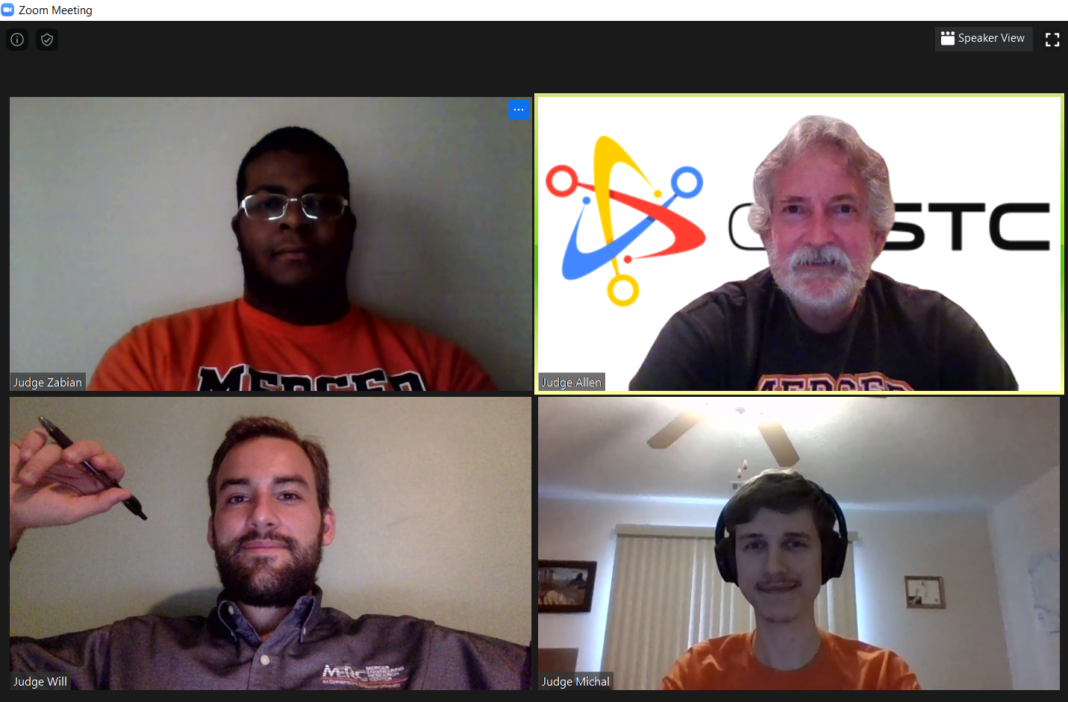When a state programming contest couldn’t happen in person, Mercer University faculty and students rose to the challenge of offering it virtually.
Every year, students in third through 12th grades who win at regional technology contests are invited to participate in the Georgia Student Technology Competition (GaSTC), normally held at Middle Georgia State University. In addition to students presenting projects in a variety of categories, a two-hour programming challenge for grades seven to 12 is held.
Dr. Bob Allen, professor and chair of Mercer’s computer science program, has coordinated this portion of the state event for the past decade, and computer science students have served as judges for the past three years. Previously, competitors brought their own computers to the competition and sat in the same classroom. They completed four programming problems and then demonstrated the codes they wrote for the judges.

“Dr. Allen and his students have always been willing to help with our programming challenge, from coming up with the problem sets for the state competition each year to doing all of the judging for the program challenge on the day of the event,” said Aaron Griffin, a member of the GaSTC steering committee. “It has been truly a great partnership that we look forward to each year.”
In response to COVID-19, all of the 2020 GaSTC events had to be switched to a virtual format. Dr. Allen and Mercer students Will Darragh, Michal Pacholczyk and Zabian Threatt built problem sets for the three different grade levels and devised an online contest environment that could be used throughout the state, Dr. Allen said.
Programming code written on one computer may not work on another, so they used an online development tool called repl.it to bypass potential issues with device compatibility.
Darragh, a Class of 2020 graduate and Fulbright U.S. Student Award winner, said he discovered repl.it when he and Dr. Allen were planning for the 2019 Mercer On Mission trip to South Africa, during which they taught kids about programming. They needed a tool that would still work without the best internet and computers, and repl.it was easy to use, accessible and required minimal bandwidth.
A week prior to this year’s programming challenge, participants were provided with notes on Zoom and repl.it and practice problems, so they could become familiar with this year’s online contest environment.
On May 8, a dozen students were put into breakout rooms on Zoom according to their grade level and kept their cameras on while the Mercer judges monitored them. They were given a link to the problems, worked on them on repl.it, and submitted their code and notes. The Mercer team later judged the students’ work, and the winners were announced along with the other GaSTC results.
“I hate the reason (for the change in the competition format), but I’m excited that we did it and for the possibility of building something bigger because of it,” Dr. Allen said. “It worked beautifully, and it can grow. What I want to do is get to where we can have 100 kids competing.”
Darragh, who wants to become a computer science educator and has done research on best practices for teaching this subject, said the competition is about helping students get better and grow. The online format allows judges to do a deeper analysis on the students’ code and give them more-detailed feedback.
“It was a great experience overall. I’m really happy to be a part of it. I think it’s really great that Dr. Allen is involved in it, and he’s given me the chance to be a part of something that I want to do for my career,” Darragh said.
Threatt and Pacholczyk worked with Dr. Allen during the spring semester to fulfill experiential learning requirements. They helped with Mercer’s Spring Programming Contest in February as well as the GaSTC competition. Threatt, a rising senior double-majoring in math and computer science, said it was a challenge to take all of the contest elements online, but it went really well in the end and he had a lot of fun.
Pacholczyk, who begins his fourth year in the computer science program this fall, hopes to help with the event again next year. He also participated in the 2019 Mercer On Mission South Africa trip. He said it’s interesting to see children at work on coding programs and how they learn.
“I’m grateful that I could be a part of this experience because I like working with the kids,” he said. “We even thought about potentially making it online in the future. It made it very easy to get the student submissions and grade them.”
The Mercer team would like to create a comprehensive site where the regional and state competitions could be run through the same system, so the kids would be familiar with the programs and the contests would be more consistent, Darragh said.
Dr. Allen said he wants to offer the online version of the programming challenge to teachers and host practice competitions every semester, in order to get more kids interested in computer science and the GaSTC event.
“The students, judges and steering committee were very pleased with how it all turned out,” Griffin said. “There are things that we are going to take from this online event to improve it for next year. It will help us to hold virtual events throughout the year for students to try it out, get exposed to programming more and hopefully increase our participation.”










